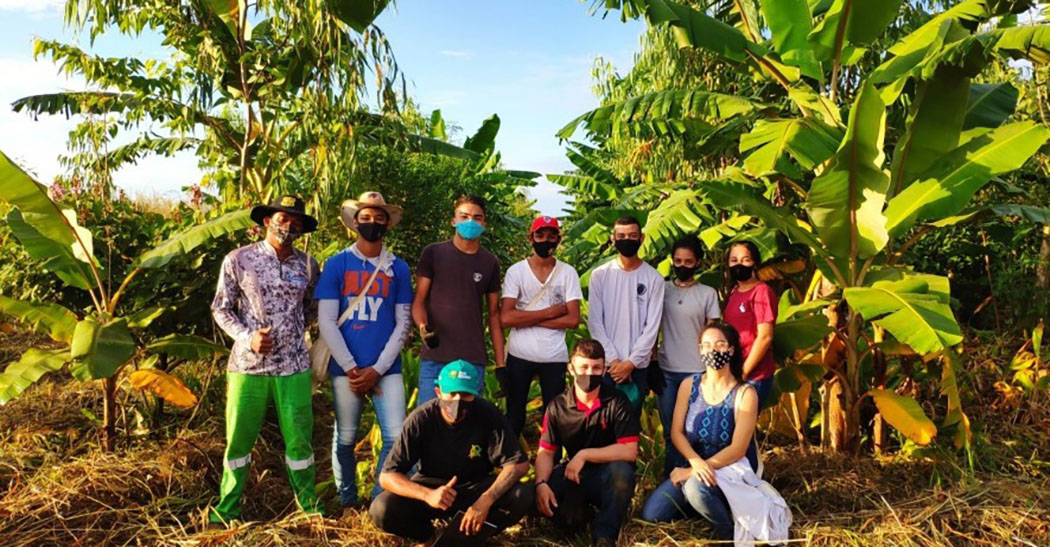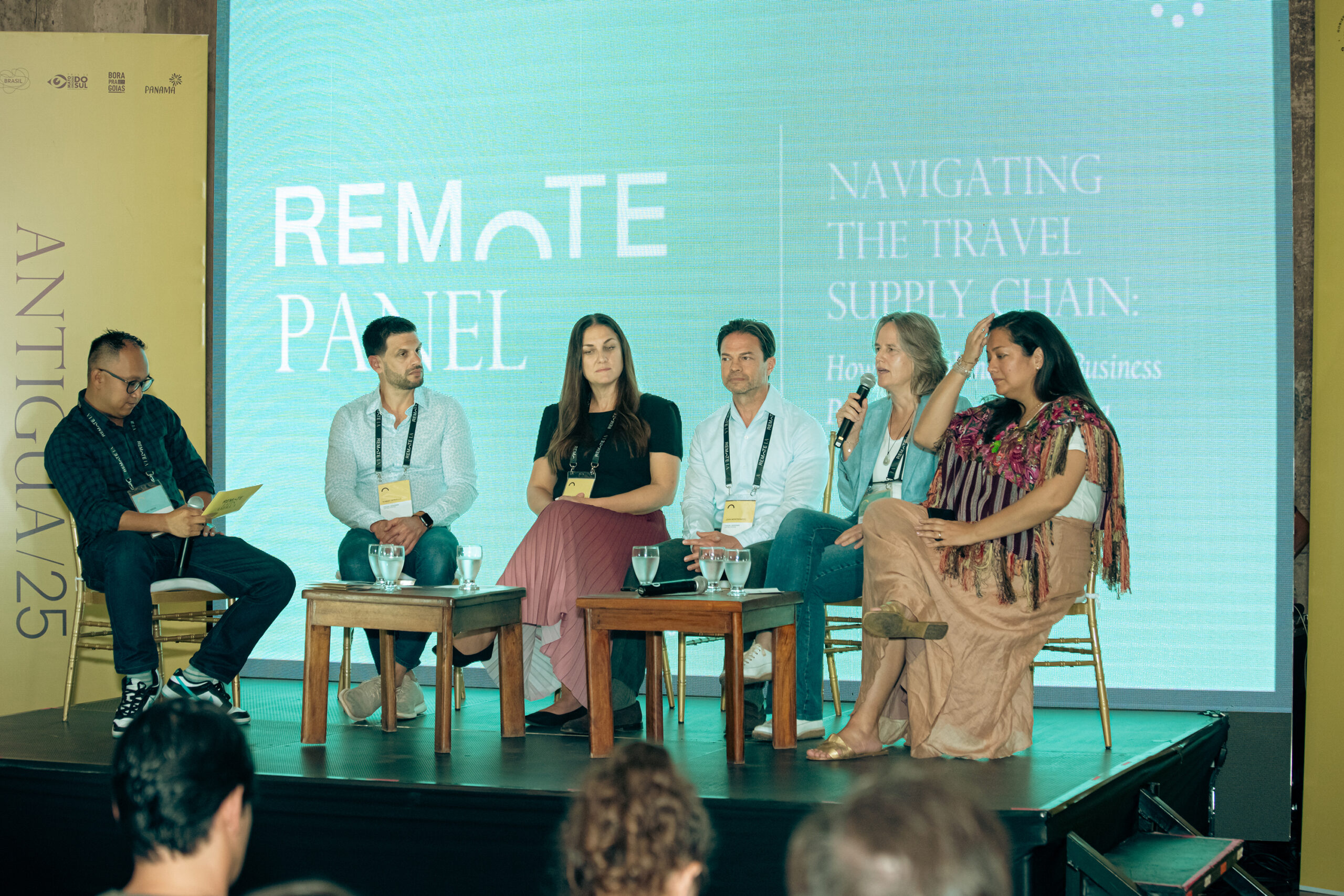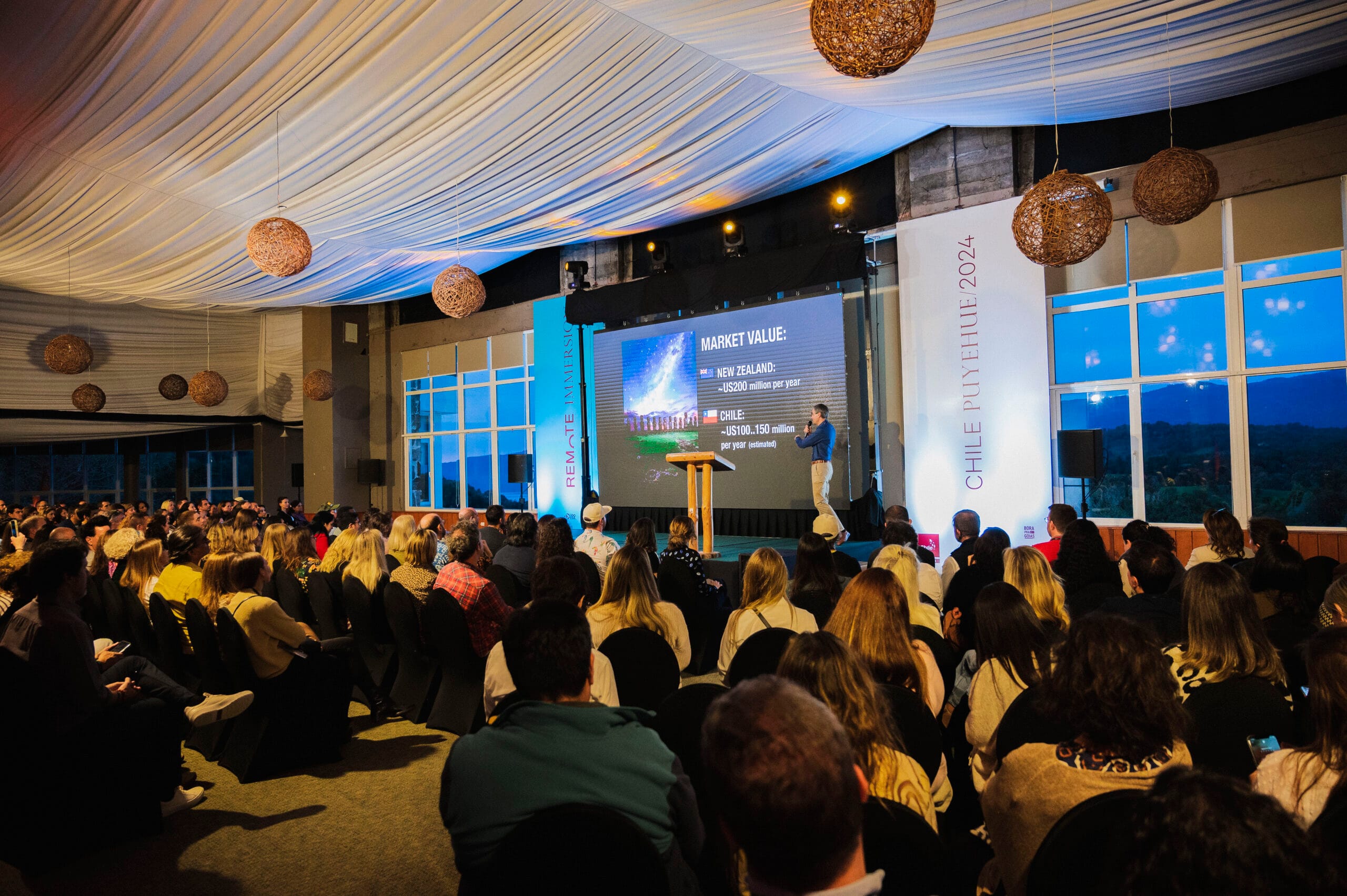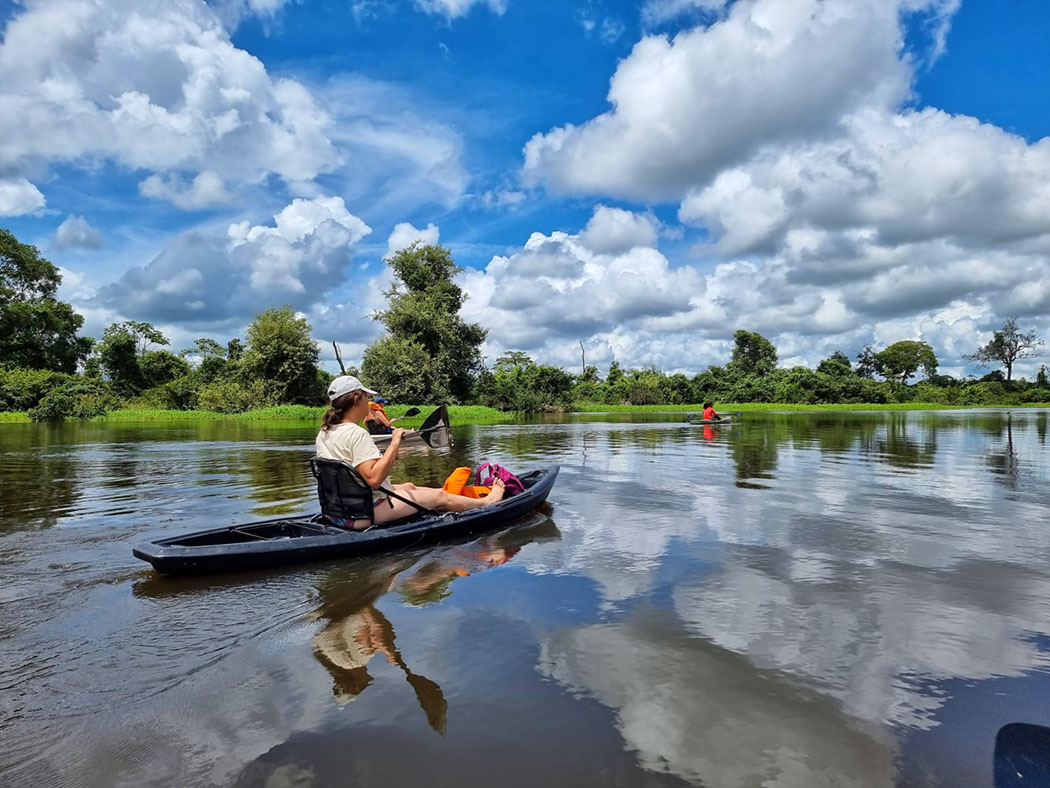
In a far-flung region in Brazil, in the Araguaia Valley, the state of Tocantins, which brings together rich biodiversity, surprising landscapes and significant stories of connection between people and the land, an innovative project is developing a new vision of nature, the land and its inhabitants. Regenerative tourism is one of the pillars of EcoAraguaia Farm of the Future , which seeks to strengthen the bond of small farmers’ families with the territory while keeping the forest standing and offering unique experiences and learning opportunities for visitors.
Working in partnership with traditional communities and small local producers, the project creator Guilherme Tiezzi understood that bioagribusiness is the ideal model to save a region that is highly threatened by monoculture farming and the departure of local residents. An old cattle ranch was transformed into the Farm of the Future, an initiative that promotes regenerative agriculture, environmental preservation, appreciation of local knowledge and the generation of new opportunities in the countryside.
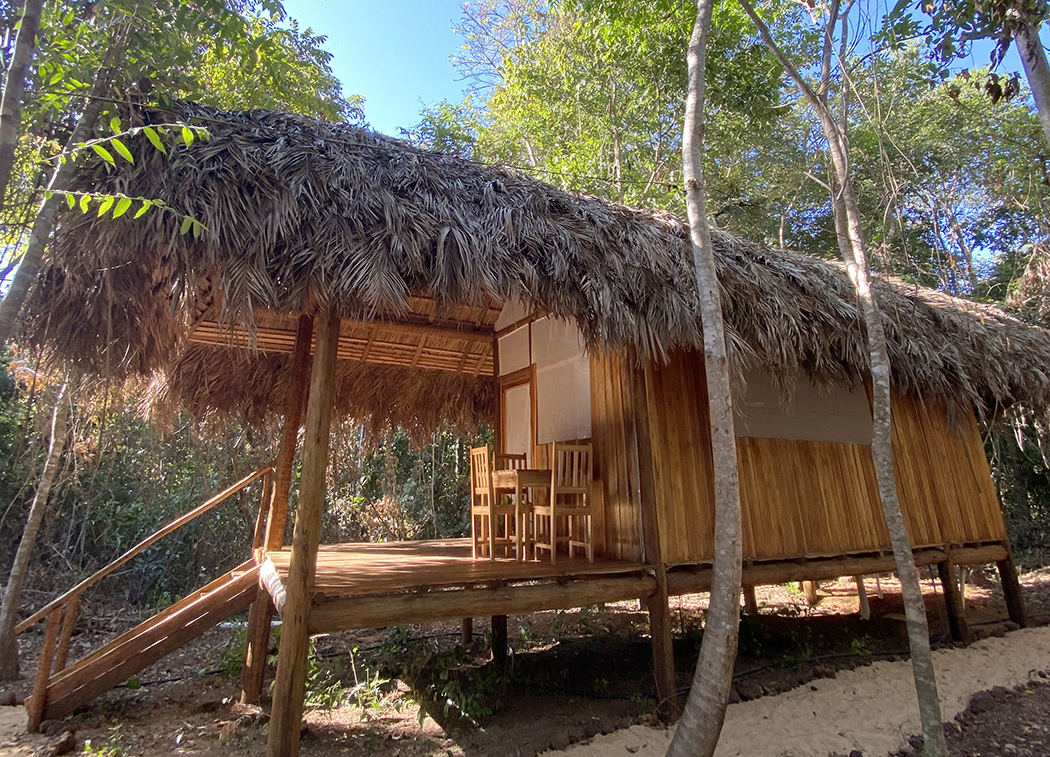
According to Guilherme, when visiting EcoAraguaia Farm of the Future and staying at the charming EcoAraguaia Jungle Lodge , travelers have an experience that goes far beyond the forest. It is an opportunity to connect with the territory and nature and experience a healthy and regenerative way of life: “I believe that regenerative tourism can attract people to experience, learn, exchange knowledge, have fun, and reconnect with nature. And, above all, to experience the view of a harmonious combination between the environment and people, between humanity, productivity and the forest”.
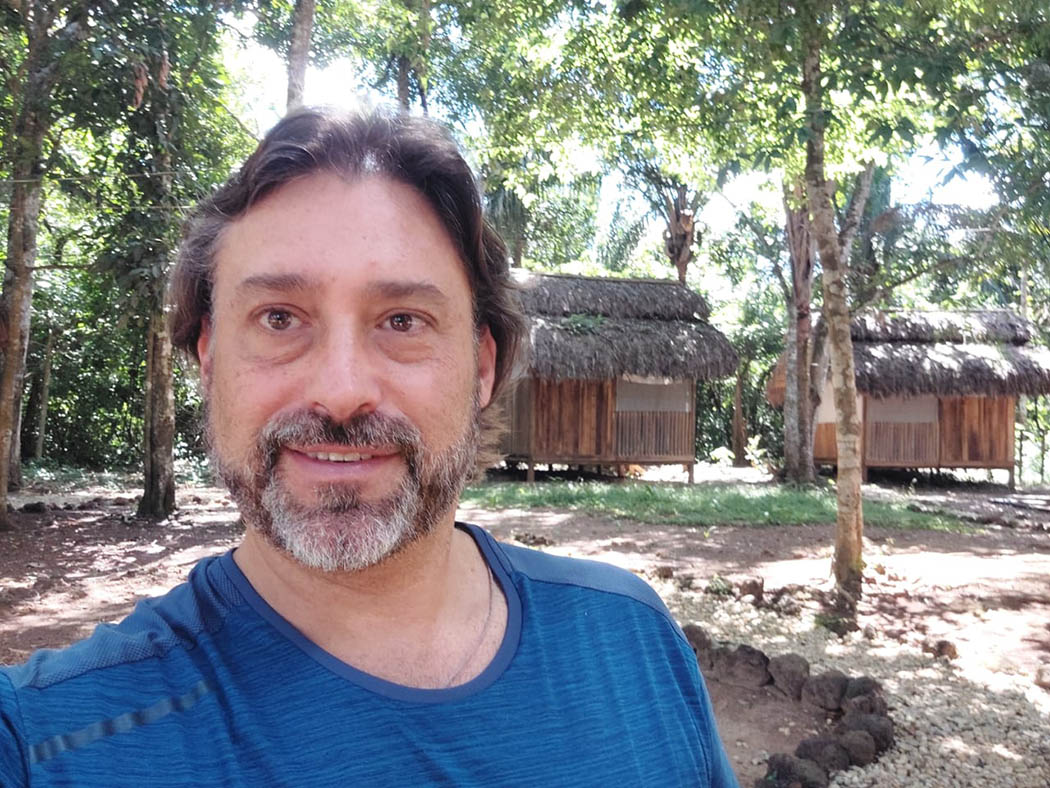
We spoke with Guilherme Tiezzi to learn more about the purpose and experience of EcoAraguaia Farm of the Future.
REMOTE LA: When was the EcoAraguaia Jungle Lodge launched and how did you have the idea of connecting ecotourism with the bio-agriculture and community inclusion purposes of Fazenda do Futuro?
Guilherme Tiezzi : We started to build EcoAraguaia Jungle Lodge in 2020, after a period of four years, from 2016 to 2020, in which I took about 250 people, in 22 different groups, to camp on the banks of the river, where the guests huts are today. We had no light, no energy. It was a very rich process, of deep listening to the territory. In all these groups that went there, with diverse types of people, such as executives, indigenous people, children, and couples, the moments of conversation at the bonfire, on the beach and in the forest were always about what this territory should be, what it was in the past, and what it is now. So, we had the first stage of listening to the land and, at the beginning of the pandemic, I made the decision to start investing in materializing the eco-ethnotourism in the area.
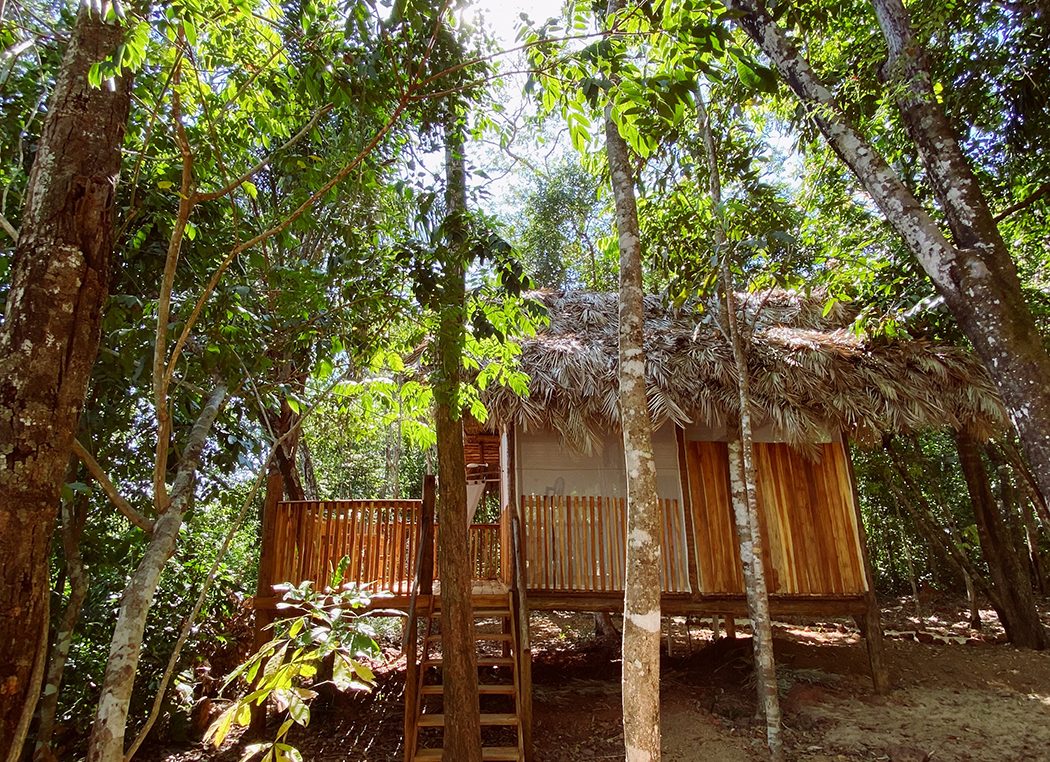
REMOTE LA: How do you believe that regenerative agriculture and livestock and responsible tourism can be allies for environmental preservation and the wellbeing of people and the planet?
Guilherme Tiezzi : I have absolutely no doubt that the combination of a productive and standing forest and the opportunity to live and work in a community, which can be seen as regenerative agriculture and livestock, are attractive for people to come and visit what we call the EcoAraguaia Village. The vision we have for the future is of a village with 72 families living together, working together and collaborating. I believe that regenerative tourism can attract people to experience, learn, exchange knowledge, have fun, and reconnect with nature. And, above all, to experience this view of a harmonious combination between the environment and people, between humanity, productivity and the forest. I’m very confident about it and I would say that maybe this is the big difference in the vision of EcoAraguaia Fazenda do Futuro, which includes the EcoAraguaia Jungle Lodge and the Village.
We work from the perspective of the 7 dimensions, which consider all the experiences of regenerative tourism that we can offer. We first put a lot of energy into the first three dimensions: the Escola Floresta (meaning forest school); the regenerative agriculture and livestock; and the networking. Escola Floresta is about reaccessing the education system in the countryside and making young people stay there or return after leaving to seek knowledge in the cities. Rural education and the forest school are priorities. Then we have the integrated production system, which are the agroforests with regenerative agriculture, and the culture of entrepreneurial network, where we look at the world from a different perspective than the employee and employer relationship, understanding that we all have abundant land for experimentation and practice.
The fourth dimension considers reforestation and ecological corridors, working on the conservation of forests and connection with other conservation units. We also foster a strong connection with spirituality by developing meditative practices and facilitating inner dialogue and resonance with Mother Earth. Within the dimension of spirituality, we have been developing many interesting experiences. The sixth dimension is tourism itself, which we initially started calling ethnic and ecotourism. We work with the native peoples who live in the region, including the Krahôs, whose culture has a lot of celebration and art. And finally, the dimension of clean and renewable energies, which intends to transform our bioregion, formed by 9 municipalities in the Araguaia Valley, into an energy matrix of clean energy.
REMOTE LA : What activities can EcoAraguaia Jungle Lodge’s guests experience and how do they differ from traditional tourism? What do you mean when mentioning a river – forest – farm – community experience?
Guilherme Tiezzi : The Forest and River experience offers contemplation, silence and meditation. It’s about decelerating from the daily life of the city to settle down and immerse yourself into the territory. I think this is the main purpose. But, understanding a little about the dynamics of the enterprise and the vision of Fazenda do Futuro as a business is always very attractive – to discuss the business model behind a jungle lodge.
We can, at the same time, experience activities ranging from water and land trails, a floating pool, kayaking, to all the aspects that involve the farm’s business dynamics. During the dry season, we have an almost private beach with white sand, which invites us for a connection with the sun, the moon and the sky. The community aspects we don’t usually promote, but they become evident when you’re there. Starting from the team of collaborators, who are not employees, but people who are living and working together – and who, in the future, may even be co-entrepreneurs. The way we welcome people, how people are treated by our team also make up a very different experience. There’s also the systemic vision of a territory that has a hotel, and that is part of a larger community. This becomes clear when we visit the settlements. We work directly with the small agricultural families of the settlements, which were landless in the past, and the riverside communities, who have beautiful life histories and who are our partners as tour guides, boatmen, etc. So, I think it’s a combination of the essence of a jungle lodge with the perspective of being part of a larger community, plus the differentiated business model with the 7 dimensions of the Farm of the Future.
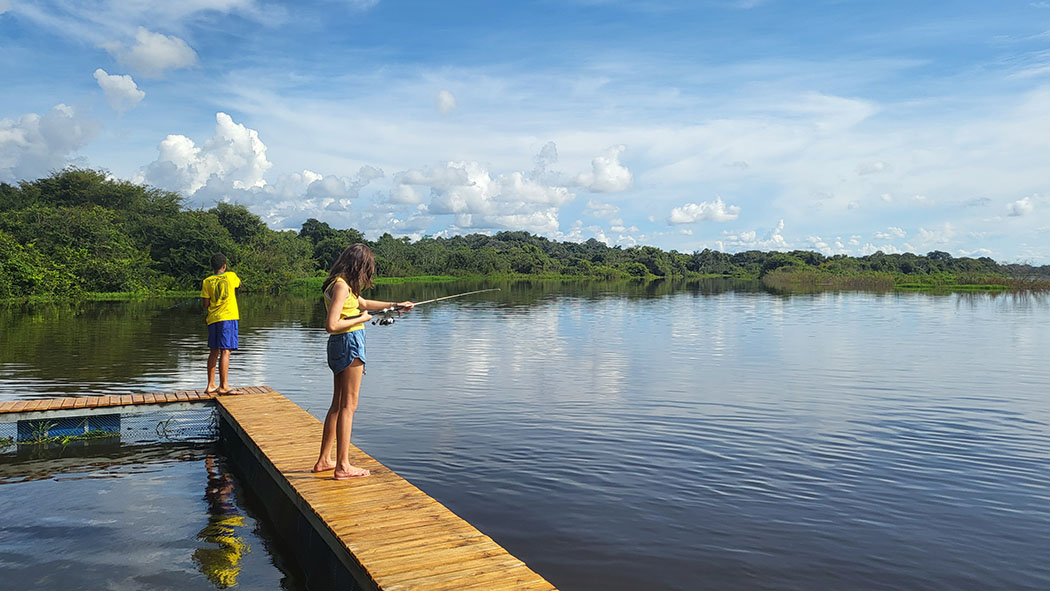
REMOTE LA : What transformations have already arisen in the region since the beginning of the Farm of the Future project?
Guilherme Tiezzi : I believe that the main transformation that can take place is the safeguarding of life in the countryside. We have a city with ten settlements in a total of 600, 700 farmer families, which, with the aggressive arrival of industrial monoculture in the region, are having difficulties staying in the land. Young people no longer believe in a dignified rural life. The arrival of soy farming brings clear threats, which are the loss of socio-biodiversity and the overvaluation of lands, meaning that local families no longer own the land. I think the biggest transformation is to revitalize the ecosystem in this bioregion of the Araguaia Valley, so that the agricultural and fishing families can keep their traditional lives. And that includes keeping the forest standing and productive, carrying out community projects and continuously promoting self-knowledge and the evolution and individual maturity of each person.
I understand that, if we evolve as a community village with this vision of the future, we will be able, within the seven dimensions, to offer and provide a lot of knowledge exchange and many experiences, that go far beyond conventional tourism.
